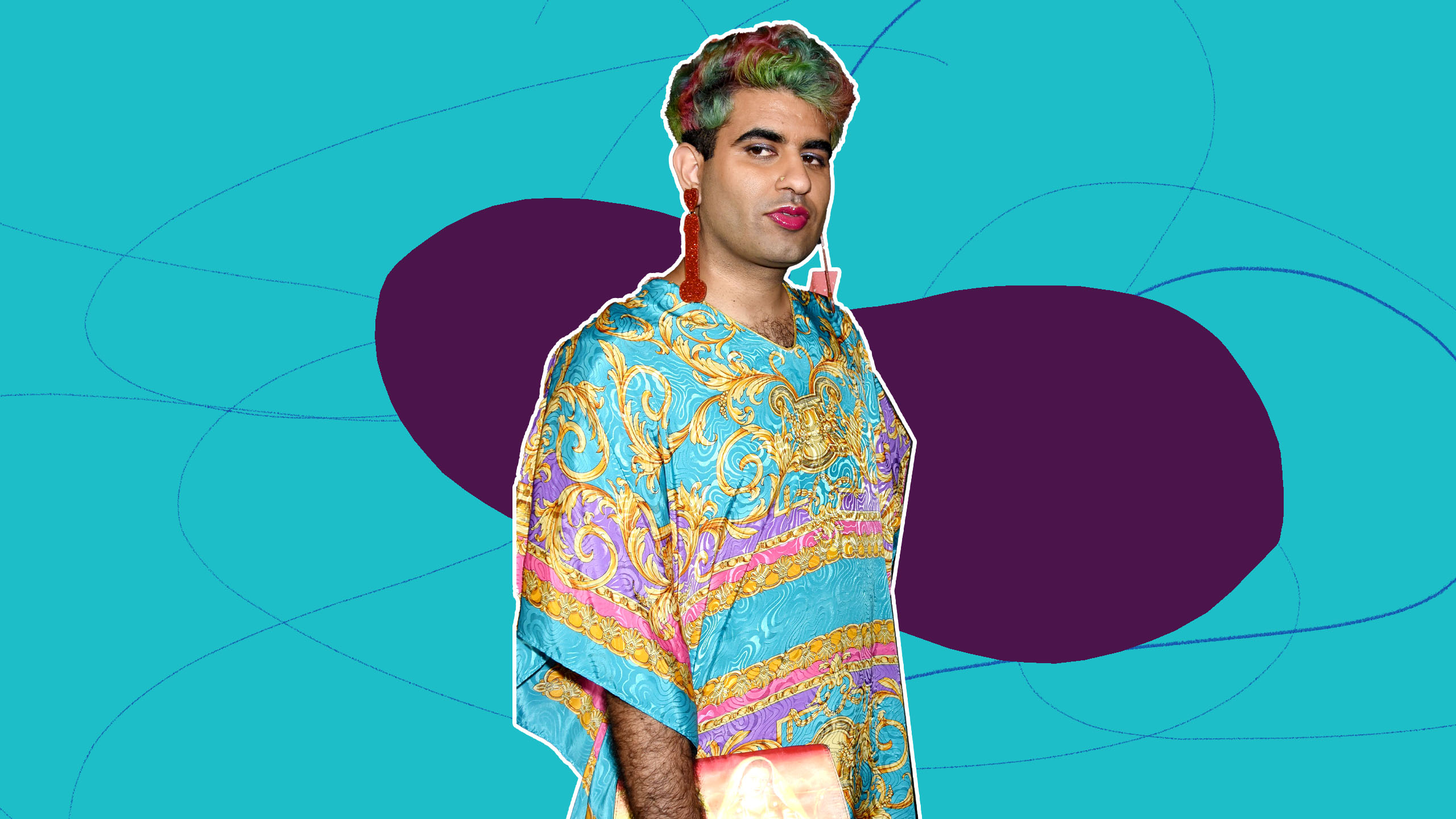Alok Vaid-Menon, who performs under the mononym ALOK, is the 2022 definition of a multi-hyphenate, simultaneously being known as a writer, performer, actor, poet and influencer. Their Instagram following has ballooned to over one million in recent years as they’ve shared messages about non-binary identity and degendering fashion.
Next year, they’re set to star in the upcoming science fiction drama film Absolute Dominion. And they’ve become a key figure in queer L.A., appearing alongside the likes of Jonathan Van Ness, Elliot Page, Jamie Lee Curtis and Sam Smith. It was in conversation with ALOK that Demi Lovato came out as non-binary a year ago on an episode of their podcast 4D With Demi Lovato that would go on to win a GLAAD Special Recognition Award.
Amidst it all, ALOK also does stand-up comedy. While it may not be what their newest wave of fans knows them for, they’ve performed on stage for nearly a decade with a unique blend of poetry, reflection and a lot of laughs. ALOK will bring it all as a headliner to the Just For Laughs Vancouver comedy festival at the end of May.
Xtra spoke to ALOK over email ahead of their set at Just For Laughs on May 26.
I don’t know if a lot of people associate you or your work with stand-up comedy in the traditional sense, but here you are at a stand-up festival. How does your work differ from traditional stand-up, and where are the crossover points?
I’ve been making jokes on stage for years. Historically queer art forms like drag have always included humour, and yet they aren’t regarded as “stand-up.” Why is that? Transfeminine people have only been regarded by traditional stand-up as the butt of the joke, not as comics. People think we are funny because of what we look like; they don’t even take the time to regard what we’re saying.
My work is situated in a legacy of queer and trans performance art, which has always braided gravity with levity, grit with glamour, comedy with tragedy—making potent political critique entertaining. I feel less propelled by form, and more by flow. Where do I need to go to make the point that needs to be made? Sometimes it’s a metaphor, sometimes a story, a poem, a gesture, a noise and sometimes a joke. So audiences will certainly recognize conventional stand-up, but accompanied by so much more. I’ve been gravitating more to comedy because it feels like the only way to communicate what I have to say: how utterly absurd gender norms are. To communicate what I feel: how delightful it is to live beyond them.
You’ve described yourself as a “love poet”—can you expand on that idea? And what sort of love should we be prioritizing right now?
Being a poet shifts the way that you perceive the world. Something so simple as the way that a car splashes water on a sidewalk becomes a microcosm of something so much greater. The more that you notice, the more you begin to see what’s so wonderful about being here. The more beauty that you see in everything: the magnificence of the mundane. The more beauty I witness, the more I feel drawn to love. To become an ambassador for all the beauty around us.
Love feels imperative now. I don’t mean symbolic love—I mean love as a daily practice. Not just “Stop Asian Hate” or “Project Trans Lives,” but loving Asianness and transness. I’m talking about a public affirmation of what for so long has been demonized. To say: “I love us more than you could ever hate us.”
In the past few years, your platform has really grown, especially on social media. What’s the biggest thing you’ve learned from the increased exposure to you and your work?
It’s paradoxical: often the more that you’re seen, the more that you’re disappeared. Many people will see only what they need to see in you (for themselves), but will disregard your complexity, duality, humanity. My friend the writer Ocean Vuong describes it as being made into a “living ghost”—simultaneously there, but not.
What’s your favourite thing you’ve seen, read, watched or experienced lately?
The A24 film Everything Everywhere All At Once totally changed my life and will stay with me forever. It’s everything that I needed to see at this point in my life. It’s re-instilled in me a deep conviction in the transformative power of art, healing and humour. I can’t recommend it enough.
What’s your favourite part of performing on stage?
Live art is why I’m alive. I just get to be. There’s a calmness and presence that I feel that’s impossible anywhere else. I’m not just performing for my audiences, I am for myself. I’m continually surprised by myself. I love that sense of wonder—it’s my favourite feeling in the world.
Who are other trans and/or non-binary comedians or performers working today that more people should know about?
Travis Alabanza, Patti Harrison, River L. Ramirez, Una Osato, Janaya Future Khan, D’Lo.
What advice do you have for young trans and/or non-binary folks looking to break into performing?
It can feel super isolating and like no one understands your craft and what you’re trying to do in the world. Try to build community early on: other people who see you for you and can give you the kind of critical feedback that can build you up, not tear you down.
What does trans and/or non-binary joy look like to you?
Our existence. Our very existence is glorious and scintillating. Such that they attempt to pass hundreds of laws to extinguish our flame. It took me a long time to realize it, but I’m finally here. They hunt us precisely because of our joy. Our joy is worldmaking.
Interview has been edited for brevity and clarity.


 Why you can trust Xtra
Why you can trust Xtra


